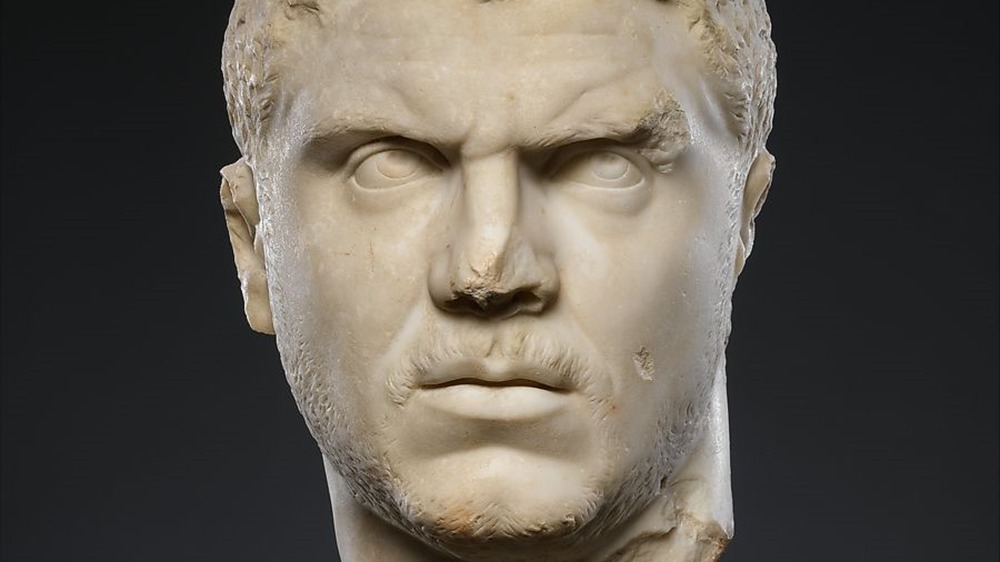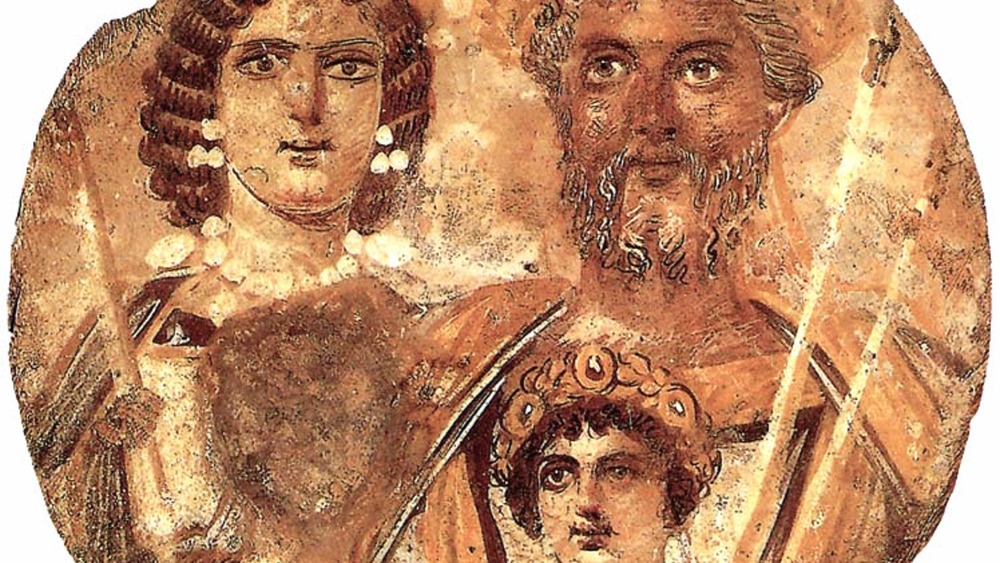The Petty Reason This Roman Emperor Slaughtered 20,000 People
Looking back, it certainly seems like Ancient Rome had more than its fair share of vainglorious, sadistic, and crazed emperors. There's the "Mad Emperor" himself, Caligula, who legend says made his horse Incitatus a government consul. There's the frustrated artist, Nero, who burned Rome to the ground, went on a Christian-massacring crusade, and murdered both his mother and mistress-turned-wife, as History states. And there's the son of the wise-sage emperor Marcus Aurelius, Commodus (popularized in the 2000 Russell Crowe film Gladiator). Through misruling, he practically drove the empire into the dirt after 84 years of peace, and per Britannica, "gave Rome a new name, Colonia Commodiana, and imagined that he was the god Hercules, entering the arena to fight as a gladiator or to kill lions with bow and arrow." Is it simply the case that unbridled power yields immeasurable insanity?
Not as well-known, but possibly even more cruelly petty than any of these emperors — if you can believe it — was Marcus Aurelius Severus (not Snape) Antoninus Augustus, also called "Caracalla," after a type of cloak that he apparently designed. It's true that Caracalla, as a deeply superstitious person who feared the reprisal of the gods, didn't persecute any followers of a certain religion. Good on him there. In 212 CE he also, as Britannica states, made all non-slave inhabitants of the empire citizens, which might have something to do with sympathy derived from his mixed North African and Syrian descent. But otherwise? Caracalla was truly a tyrant.
A sibling rivalry led to the deaths of 20,000
By all accounts, Caracalla was a person of seeming contradictions: sensitive but hostile, well-read but full of hatred towards the well-educated, physically fit but so indolent he couldn't even wear his own armor. He was in love with military power and glory, idolized Alexander the Great to the point where he dressed and acted like him, and wanted his portraits and statues to look brutal and cruel because it "flattered his vanity to spread fear and terror." From 212-217 he led senselessly brutal campaigns against German and Parthian tribes, largely to steep himself in notions of grandeur, and also sent troops into Alexandria to kill citizens for an ultimately unknown reason.
In his personal life, Caracalla was just as savage. He hated his wife Fulvia Plautilla, 14 at the time of their marriage, because he hated her father Plautianus, an imperial guard. So, he murdered Plautianus and exiled Fulvia before having her murdered, too. Caracalla's greatest atrocity, however, resulted from malice towards his younger brother, Geta. When their father Severus died in 211 (right before Caracalla went on his bloodthirsty campaigns), Caracalla murdered Geta. But, he didn't stop there. He went after his brother's associates, friends, anybody he could find. In the end, what began as a sibling rivalry, as Heritage History recounts, resulted in the deaths of 20,000 people.
Before Caracella could embark on another Parthian campaign, he, like many other Roman emperors, was finally assassinated in a coup.

